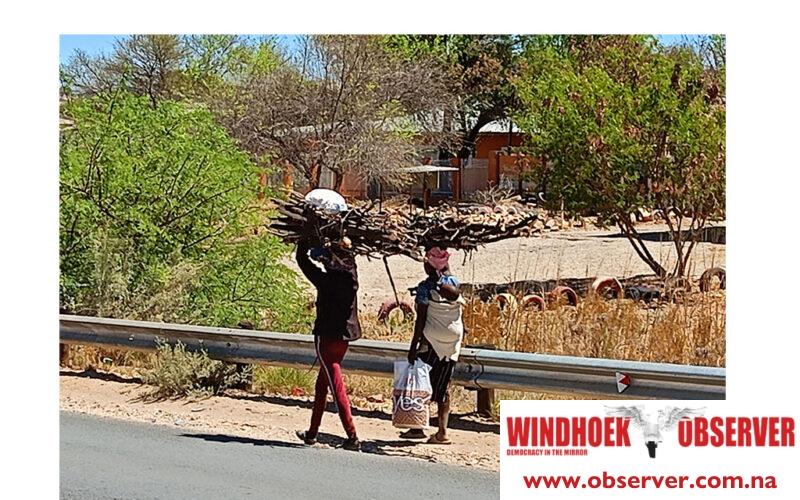Moses Magadza
The Regional Women’s Parliamentary Caucus (RWPC) of the SADC Parliamentary Forum recently held a virtual statutory meeting and public hearing, focusing on enhancing women’s leadership roles in climate change and disaster risk management.
The meeting, chaired by Shally Josepha Raymond of Tanzania, also addressed key barriers to women’s political participation and discussed strategies for gender-responsive budgeting within national and regional development plans.
Additionally, it addressed barriers to women’s political participation and strategies to strengthen regional cooperation in tackling gender inequality.
The public hearing highlighted necessary policy reforms aimed at economically empowering women in rural and informal sectors, ensuring a more inclusive development landscape for all.
Raymond said presentations from different experts would give the caucus a better understanding of the thematic areas deliberated on in addition to well-thought out and evidence-based information on which to develop recommendations to the 56th Plenary Assembly of the SADC PF for consideration.
“We must have access to food, water, land and capital and access to women’s leadership and decision making,” she said, adding that regional integration can only be realised by implementing gender equality and uplifting of women.
Citing the International Labour Organisation, she said globally, women aged between 25 and 34 are 35% more likely to live in extreme poverty than men.
She noted that women and girls make up 43% of the global agriculture labour force and produce 60-80% of global food, yet they make up only 15% of agricultural landowners.
She said women and girls make up 75% of unpaid care work and called for their empowerment and inclusion in the development process.
Clare Musonda is the programme manager and committee secretary responsible for the Regional Women’s Parliamentary Caucus at the SADC PF.
She said last week’s public hearing attracted thirteen submissions from six SADC Member States and five representatives of various regional partner institutions.
Grace Kibunja of the African Population Health and Research Centre (APHRC) made a submission on how parliaments can enhance women’s leadership roles in addressing climate change and disaster risk management.
She submitted that women mostly depend on natural resources, which are susceptible to climate-related shocks.
Their limited access to resources and decision-making often hinder their ability to adapt to and mitigate the effects of climate change.
She said parliaments can enhance women’s leadership roles by ensuring climate change and disaster risk reduction policies are gender responsive.
She also called for more women in decision-making roles in parliamentary committees for climate change and disaster risk management.
On gender-sensitive budgeting, Kibunja said several strategies could be used to draw fair budgets for men and women to thrive in their communities.
She highlighted several barriers keeping women out of politics.
“Women frequently lack support from political parties and are excluded from decision-making structures within these parties. They also endure discrimination and violence, which deters them from engaging in politics. They also experience sexual harassment and intimidation from other political aspirants and the public, creating a hostile environment for them,” she said.
She said these barriers could be removed through changes in legislature, culture and tradition, as well as increased support for women in politics through funding and training.
Sylvia Chikalipo of Oxfam SAF Cluster for Gender Justice made a submission on parliaments enhancing women’s leadership roles in climate change and disaster risk management.
She said climate change harms the rights of millions of people worldwide, particularly women, who are already marginalised. Women and girls often face the most aggravating impacts of climate change, like hunger, drought, and loss of lives, homes, and livelihoods.
Chakalipo said climate justice and gender justice are central to Oxfam’s 10-year Global Strategy 2020-2030 to tackle the systemic drivers of the crisis and demand a just, equal, and feminist transition that advances human rights for all.
She urged parliaments to influence national spending, laws, and policies towards women’s leadership in climate change and disaster risk management.
“This entails legislating to integrate gender into disaster risk reduction and risk-informed development spending and existing work,” Chakalipo added.
She urged parliaments to leverage disaster risk reduction issues relevant to SDG 5 and other SDGs when negotiating international funding assistance for gender-responsive disaster resilient poverty, food security, good health, education, urban resilience, and climate change.
She implored MPs to lobby for more budget allocations for implementing national disaster risk management plans and national-specific DRR-responsive gender plans of action by line ministries to promote women’s leadership.
The committee noted that despite progress in gender equality, including 42% of parliament seats occupied by women and 81% of South Africans supporting the election of women, barriers to women’s political participation persist in the country.
These include social barriers, with 59% believing women candidates face criticism or harassment and the country already recording high rates of domestic violence.
Nomthandazo Mpande from the Phoki Foundation said disability intersects with gender, putting women with disabilities at greater risk of exclusion from the economy and decision-making processes.
She urged parliamentarians to boost representation of women with disabilities in decision-making on climate change policies and implement inclusive disaster response strategies that consider the vulnerabilities of women with disabilities.
She added that gender-responsive budgeting should mandate national and regional development plans to allocate specific resources for the economic empowerment of women with disabilities.
Mpande said these women face compounded barriers to political participation, including physical access to voting and political platforms, social stigma, and lack of support.
She called for policy reforms to ensure women with disabilities in rural and informal sectors also access vocational training and microfinancing schemes, technology, and infrastructure to enhance their economic activities.
Her sentiments were echoed by Carol Kapungwe, a disability rights activist from Zambia who focused on the barriers inhibiting women’s political participation.
“In Zambia, the major barriers include political violence from both within and outside political parties, a lack of campaign funds and traditional gender-based discriminatory attitudes,” she said.
Kapungwe said the solution could be in legal reforms, funding and campaigning for women candidates, and preventing and mitigating political violence against women throughout the electoral process.




